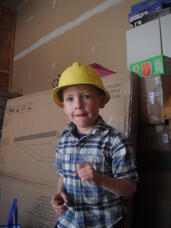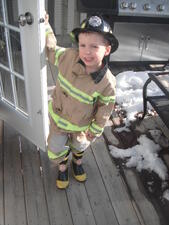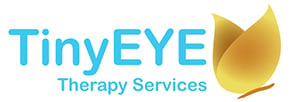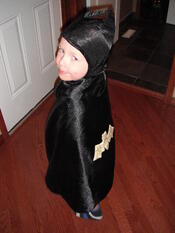PRETEND PLAY
"Mommy, when you get taller and taller...you can fly like me." ~Aiden
Hi Everyone,
Have you seen Batman flying through the grocery store? Have you seen Fireman Sam climbing ladders at the park? Have you seen a "working man" bring his plastic, yellow hammer to preschool? If you have, you have seen my three year old son, Aiden. These days, Aiden barely leaves the house as himself. I have decided to be thrilled that he has self-immersed himself into this phase...pretend play. Pretend play is a super step in language development!
 Benefits of Pretend Play
Benefits of Pretend Play
• Pretend play means “acting”. For example, acting out a trip to the store, acting out housekeeping, acting out a story, and acting out gas station are all examples of pretend play. Besides being fun, play encourages language ability, literacy development, thinking skills, and imagination.
• Copy Cat! Children are eager to do what grown-ups do. Pretend play, props, and materials can encourage children to imitate adult’s work and leisure activities. These activities help children to develop their language and interaction skills as they act out stories and activities of daily living. First, children need experiences with the real world to know how to imitate it. Books, videos, and real life exposure to experiences can launch a child into pretend play.
• Many children create their first stories through pretend play as they involve characters, plots, problems, and solutions.
• Environments that simulate children’s natural environments, such as a play-house or a pretend post office, help them to more easily transfer their emerging language skills from the pretend play setting to the real life setting. The play experience gives them extra practice with the vocabulary and with using social and language skills to interact.
 Highlights of How Pretend Play Develops Language and Literacy Skills
Highlights of How Pretend Play Develops Language and Literacy Skills
• Storytelling skills: creating a story-line and characters
• Sequencing: putting the events of the story in order (beginning, middle, end)
• Logical thinking: thinking through what each character would do or say in a particular situation
• Imagination: creating mental pictures without the use of real objects (pet pony)
• Comprehension: understanding the flow of the story, and the responses, motives and actions of the characters
• Communication Skills: listening, explaining, considering another person’s point of view…
All Play is Valuable to Learning
Children interact with their toys in different ways and for different purposes. They engage in the following types of play alone, beside others, and with others.
- Functional Play – Children explore their world through functional play when they bang, shake, push, and dump toys and manipulate materials, such as sand and water. They run and jump again and again. This begins during infancy and then decreases after age 3. Trick: Copy what the child is doing. She might copy you back. This is a fun way to teach turn taking, imitation skills, and cause & effect skills.
- Constructive Play – Children create or build something, such as a tower or a craft. This increases around 18 months and continues to increase through the preschool years. Trick: Position yourself near the child. Watch closely for non-verbal communication (i.e. looking at you, handing something to you, looking at your toy) which may be an invitation to play. After a while of watching, you can ask him what you can do to help. Likewise, you can start doing something very interesting with yours and invite him in to help you.
- Dramatic Play – Children act out scenarios. As children become older, more and more of the dramatic play will involve peer interaction and collaboration. Initially, children act out an idea by themselves, which tends to start after the first birthday (i.e. putting a bottle in a doll's mouth). By the age of two, you will see two children sitting beside each other ‘pretending’ to care for their babies, but not truly interacting with each other. Three year olds may act out a familiar experience, like going to the doctor, with their friends. By five, children act out truly make-believe experiences, such as taking care of the unicorns in the castle. Trick: Put on your acting shoes and play away. Get in on the script -play the part! Join the land of Make-Believe! By doing this, you can also subtly model advanced play behaviour, ideas, or language. For example, if you are pretending to ride in the boat, you can say and act how the boat is so big and the waves are so high – you are getting so wet…better use a pail to empty out some water…better put up a new sail …oh no an octopus jumped in! However, avoid over-using the “fun-one” conversation style and running the whole show. Inspire the children with your animated interest, your suggestions, your “I wonder what….?”
Next time you have a rainy day Saturday, pull out boxes, paper, hats, writing materials and stamps, and blankets. A wonderful adventure awaits you! WHERE are we going? HOW will we get there? WHAT will we do when you get there? WHO is there?!
Play: Keeping it Real
An important part of the play is to learn how the world exists beyond your immediate needs and that others have ideas, too. As you gently guide your child towards positive play experiences, remain empathetic to his or her perspective:
I want my way and I want it now
and I'm not sharing - no way no how
"Use your words!" you say to me
Well I'm the boss 'cause I AM THREE!
Have fun,

![]()
Marnee Brick, MSc
Speech-Language Pathologist and Director of Speech Therapy
TinyEYE Therapy Services (Speech Therapy Telepractice)
Growing smiles, mending spirits, engaging children in their lives…
TinyEYE is the world’s preferred online speech therapy service provider for schools, agencies, and individuals who seek exceptional performance, revolutionary solutions, outstanding service, and student success!


